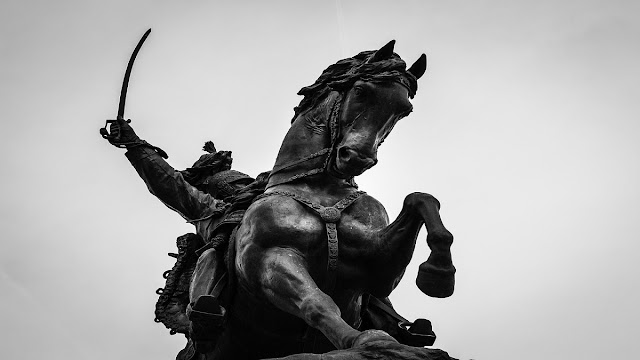Before moving on further, let’s define a freedom fighter. A freedom fighter wants his people to have their own nation. It will be a nation where they can freely practice their social norms.
Unsung Heroes of Freedom Struggle
World history is full of such unsung heroes of freedom struggle. But in this example essay, we will discuss only a few ones due to some limitations. The struggles and objectives of such heroes are as follows;
Steve Biko
Our first unsung hero of the freedom struggle is from South Africa. Bantu Stephen Biko, commonly known as Steve Biko, was a political activist. On December 18, 1946, he was born in King William’s Town, South Africa. Steve worked for the rights of black people in the South African community. He was also the founder of the Black Consciousness Movement in South Africa. His death due to the injuries during police custody made him an international martyr. Steve died on September 12, 1977, in the police station of Pretoria.Early Days of Life
Biko completed his graduation (1966) from St. Francis College. Biko was a political activist from the early days of his life. This leads him to play his role in the rights of black people. After his graduation, he became involved in the National Union of South African Students (NUSAS). He felt that society should be reconstructed around the culture of the Black majority.Political Work
He also found his own organisation. The organisation’s name was the all-Black South African Students’ Organisation (SASO). This organisation encouraged Blacks to recognise their dignity and self-worth. The Black Consciousness Movement became popular within no time. The movement spread from university campuses to urban Balck communities.
Challenges
Biko experienced the first censorship in 1973. He and other members of SASO were thereby banned. Biko was, in the end, found naked and shackled in 1977 in Pretoria, and he died the very next day.Fatima Begum
The next unsung freedom hero is a female political activist, Fatima Begum. Born in a noble and literary family of Lahore in 1890, she played a very crucial in the Pakistan movement. She was the daughter of Munshi Mehboob Alam. Alam owned a newspaper named Paisa Akhbar. Fatima Begum died in 1958. She played an important in the freedom of Muslims of the sub-continent as a journalist.
Early Days of Life:
Fatima Begum received her early education at home from his father. Later on, she went to complete to Punjab University for her Masters. She also served as a teacher at Lady Maclagan School. But soon after her studies, she joined her father’s magazine, Sharif Bibi’s team. She held this position until 1919.Political Work:
Fatima Begum worked for the women wing of the All-India Muslim League, Mumbai. She used to publish a magazine every week named Khatoon. This magazine covered the religious, political and literary topics related to women. Fatima returned from Mumbai to Lahore in 1937 to engage in political activities and protests. She played a crucial role in awakening the women of the sub-continent for freedom. After the creation of Pakistan, she became the provincial president of the Muslim League.Also Read This: Perfect Essay Format with No Fail Risk for University Students
Yaa Asantewaa:
The last unsung hero of freedom struggle in today’s list is Yaa Asantewaa. Born around 1840, she was a politician, war strategist and political activist. She played a very important role in the rescue of Golden Stool. In 1921, she passed away. She was a prosperous farmer who also happened to be a mother. She was a thinker, a politician, a human rights activist, a queen, and a leader all rolled into one.War of Golden Stool:
Asantewaa is famous for her war against British Empire. In 1900, when spirits were very low, she led a war against the British to defend Golden Stool. In the end, British forces won the war, but she remained a symbol of courage and strength. Much more information is not available on the life of Asantewaa. She is only known for her battle against the colonisation system of the British Empire.Conclusion
Freedom, no doubt, is the best thing that an individual would want to taste in his life. It is the people among us who fight for our freedom. History can’t remember all our unsung heroes of freedom struggle, but at least we can. I want to conclude the discussion on this quote. “Give me blood, and I will give you land.”

0 Comments
Post a Comment